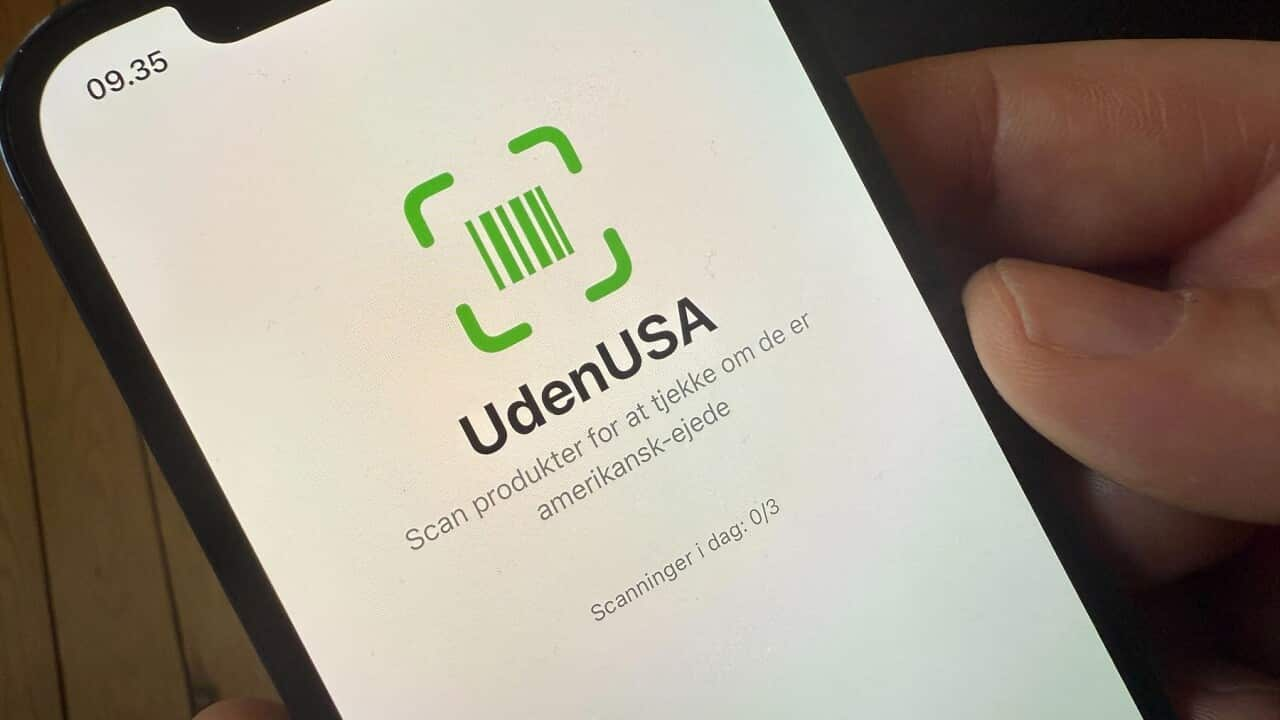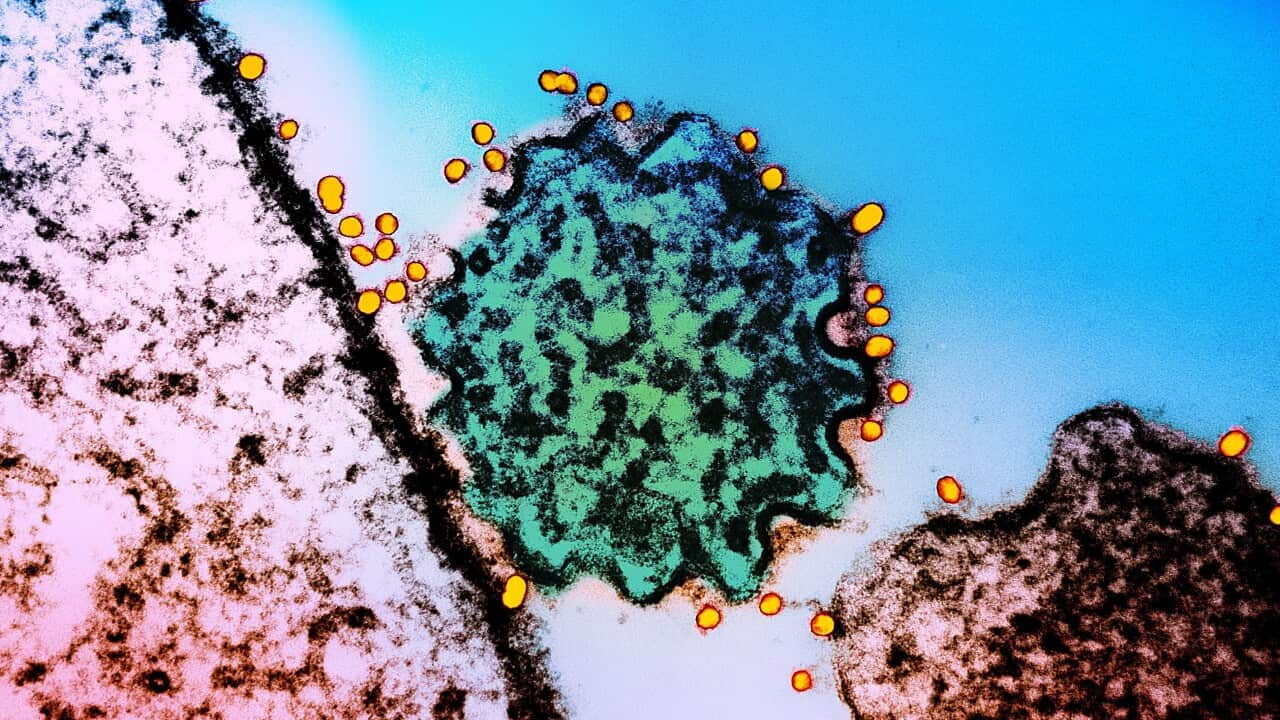Listen to Australian and world news, and follow trending topics with SBS News Podcasts.
TRANSCRIPT
Tensions have flared in Gaza over the past few days, threatening to unravel a ceasefire brokered by the United States earlier this month.
In response to a deadly attack on Israeli soldiers, the Israeli military launched airstrikes that Gaza's Health Ministry says killed at least 45 Palestinians.
Despite the escalation, both Israel and Hamas have reaffirmed their commitment to the ceasefire, as U-S envoys work to stabilise the situation.
President Trump has dispatched senior advisers, Steve Witkoff and Jared Kushner, who have met Israeli Prime Minister Benjamin Netanyahu in Jerusalem.
Mr Netanyahu confirmed the meeting and announced that US Vice-President JD Vance will arrive shortly for further talks.
"Tomorrow, Vice President JD Vance will arrive on his behalf of President Trump, and we will converse.... We will discuss two issues, mainly two issues. About the security challenges we are facing and about the political opportunities we are facing. We will overcome the challenges and will realise the opportunities."
In Washington, President Trump praised the ceasefire deal but warned Hamas not to test it.
“We had a dark cloud over the Middle East and now it's all, we have a little situation, relatively, with Hamas, and that will be taken care of very quickly if they don't straighten it out themselves, because they're in violation of their agreement. ... We made a deal with Hamas that they're gonna be very good, they're gonna behave, they're gonna be nice, and if they're not, we're gonna go and eradicate them if we have to. They'll be eradicated."
Reporters pressed him on whether this meant deploying US troops to Gaza.
“No. It won’t be boots on ground, we won’t need to because we have many countries signed onto this deal. The way I view it, 59 countries. ... We’re going to give it a little chance and hopefully there will be a little less violence but right now , you know, they’re violent people. Hamas has been very violent. But they don't have the backing of Iran any more. They don't have the backing of, really, anyone any more. They have to be good."
Despite Mr Trump's claim, there has been no official indication from Iran that it no longer supports Hamas.
Meanwhile, in Jerusalem, Israel’s government spokeswoman, Shosh Bedrosian, has accused Hamas of intentionally withholding the remains of Israeli hostages.
“We are still demanding for the bodies of our deceased hostages to be returned by the terror organisation Hamas. We know Hamas can return them, and we know that Hamas is aware of where they are located. There are 16 deceased hostages required to be released under this first phase of the plan. ... No one misplaces people they kidnapped. Any suggestion that Hamas doesn’t know where the hostages are is not just an excuse, it’s part of their propaganda.”
Meanwhile, inside Gaza, humanitarian convoys resumed after a one-day pause.
Footage from Khan Younis shows trucks loaded with food, fuel, and medical supplies winding through rubble as residents queued for relief.
Among them, Gaza resident Shaaban Abu Jamea.
“I have not received any aid for the last two months. This will only last me 15 or 20 days, which is not enough.”
Another Gaza resident, Raafat al-Qarra, agrees.
"It's not enough for anything, it's only enough for four or five days for a family of six people. If the aid package was bigger than this, or even delivered weekly, it would be better. You can see how expensive prices are becoming, and we cannot afford to buy anything.”
As the trucks rolled in, Israeli aircraft dropped warning leaflets advising people to stay away from the yellow line, the boundary marking areas of Israeli withdrawal.
But many residents say they are confused about where that line actually runs.
Under the ceasefire plan, future phases are meant to finalise those boundaries, disarm Hamas, and form a technocratic body to govern Gaza under international supervision.
But with mistrust high and sporadic violence continuing, the road to stability is complicated.
At the Knesset, Mr Netanyahu vowed to continue the effort to recover the bodies of slain hostages.
"But no one needs to remind us of the importance of the sacred mission of bringing the slain hostages back. We are working non-stop. I don't exaggerate, we are working non-stop, including in the meeting I just held before coming here, we are working all the time to complete this sacred mission."
The Gaza war has killed more than 68,000 Palestinians, according to Gaza’s Health Ministry.
Israel disputes those figures.
Hamas-led militants killed around 1,200 people and abducted more than 250 on the 7th of October 2023, in the initial attack that triggered the escalation.
For now, the guns are mostly silent, but the peace remains uneasy.
US envoys are still on the ground, trying to keep both sides at the table and prevent more deaths on either side of the conflict.













